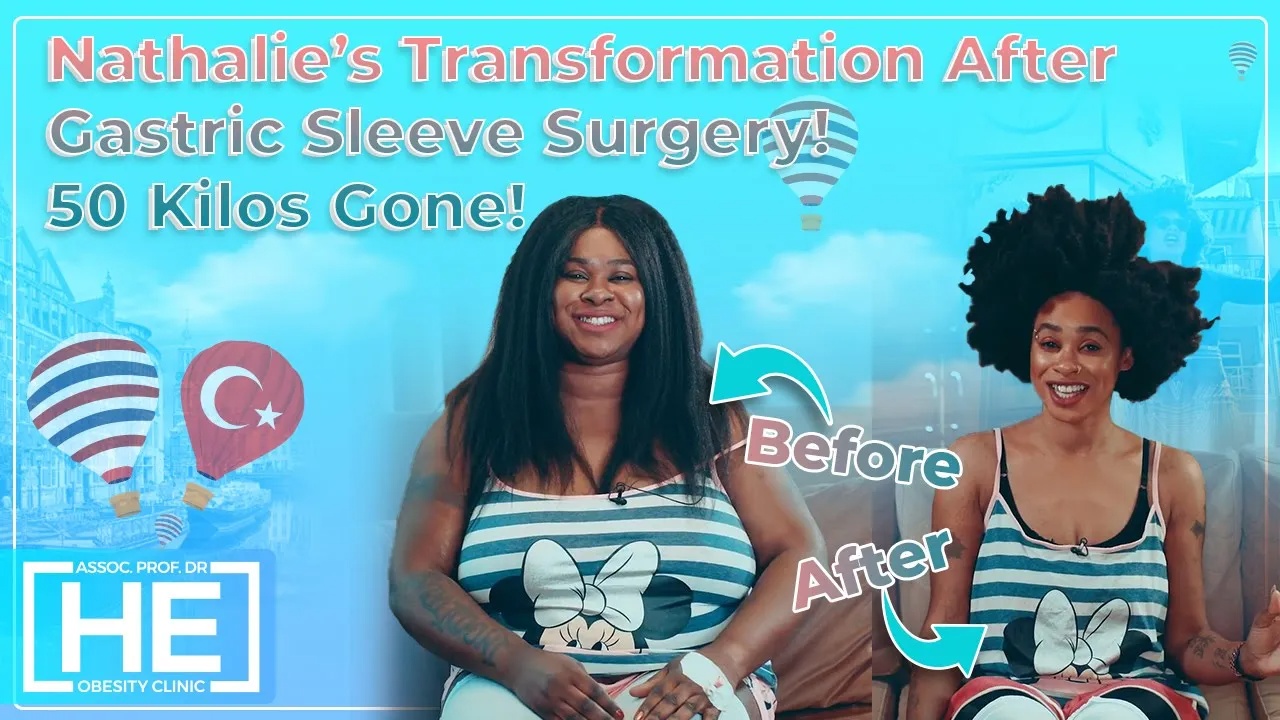Why following the post-surgery diet is important
The diet recommended after gastric sleeve surgery is not arbitrary. It is designed to promote healing, aid in weight loss, and foster healthier eating habits. Initially, the diet is restricted to clear liquids to allow your stomach to heal without being strained by digestion.
The transition from liquids to pureed foods to soft foods, and finally to solid foods, is calculated to gradually reintroduce your digestive system to handling food. Eating solid food too soon can disrupt this healing process and potentially lead to complications.
Moreover, the post-surgery diet is crucial for achieving your weight loss goals. The surgery alone is not a guarantee of weight loss; it is a tool to help control portion sizes and reduce calorie intake. Maintaining a balanced, nutrient-dense diet is essential to maximising the benefits of the surgery.
What happens if you eat solid food too soon after sleeve surgery?
What happens if you eat solid food too soon after sleeve surgery? Eating solid food too soon after sleeve surgery, also known as sleeve gastrectomy, can have serious consequences for the patient. Sleeve surgery is a type of weight loss surgery that involves removing a large portion of the stomach, leaving behind a "sleeve" or tube-shaped stomach. This restricts the amount of food the stomach can hold, leading to reduced food intake and ultimately weight loss.
After sleeve surgery, patients are typically put on a strict diet plan that progresses from clear liquids to pureed foods and eventually to solid foods over a period of several weeks. This gradual progression allows the stomach to heal and adjust to its new size and shape. Eating solid food too soon can disrupt this healing process and lead to complications.
One of the most immediate risks of eating solid food too soon after sleeve surgery is the potential for stomach irritation and discomfort. The stomach is still in the early stages of healing, and solid foods can be more difficult to digest, leading to pain, nausea, and vomiting. In some cases, this can even cause damage to the surgical site and lead to complications such as leaks or infection.
Another risk of eating solid food too soon is the potential for stretching the stomach pouch. The purpose of sleeve surgery is to reduce the size of the stomach, limiting the amount of food it can hold. Eating solid foods too early can stretch the stomach pouch, reducing its effectiveness in helping the patient feel full and satisfied with smaller portions. This can ultimately compromise the success of the surgery in achieving long-term weight loss. In addition to physical complications, eating solid food too soon after sleeve surgery can also have psychological implications. Many patients undergo sleeve surgery with the goal of making significant lifestyle changes and improving their relationship with food. Eating solid foods too soon can undermine these efforts and lead to feelings of guilt, frustration, and disappointment.
It's important for patients to follow their surgeon's recommendations and adhere to the prescribed diet plan following sleeve surgery. This typically involves a period of consuming clear liquids, followed by a phase of pureed foods, and finally transitioning to solid foods over the course of several weeks. This gradual progression allows the stomach to heal properly and minimizes the risk of complications. If a patient experiences any discomfort or difficulty with their diet progression following sleeve surgery, it's crucial for them to consult their healthcare provider. Making dietary modifications without medical guidance can jeopardize the success of the surgery and put the patient's health at risk.
What happens if you eat wrong food after gastric sleeve?
What happens if you eat wrong food after gastric sleeve? Eating the wrong foods after undergoing gastric sleeve surgery can have serious consequences for your health and well-being. This surgical procedure reduces the size of your stomach, limiting the amount of food you can consume. As a result, it is crucial to follow a specific diet to ensure that you are getting the necessary nutrients while avoiding potential complications.
After undergoing gastric sleeve surgery, your stomach is significantly smaller, and it is essential to make mindful choices about the foods you consume. Eating the wrong foods can lead to discomfort, digestive issues, and potential complications. It is important to understand which foods to avoid and which ones to prioritize to support your overall health and weight loss goals.
One of the most significant risks of consuming the wrong foods after gastric sleeve surgery is the potential for stretching the stomach pouch. If you overeat or consume foods that are high in calories, sugar, or fat, it can lead to stretching of the stomach pouch, diminishing the effectiveness of the surgery. This can also result in discomfort, nausea, vomiting, and an inability to lose weight as intended. Furthermore, consuming the wrong foods can lead to inadequate nutrient intake. After gastric sleeve surgery, your body requires a specific balance of nutrients to support healing and overall health. If you consume foods that are high in empty calories and low in essential nutrients, you may experience deficiencies that can lead to fatigue, weakness, and other health issues.
To avoid these potential complications, it is crucial to adhere to a well-balanced diet that focuses on lean protein, fruits, vegetables, and whole grains. Avoiding processed foods, sugary snacks, and high-fat items is essential for long-term success after gastric sleeve surgery. In addition to physical discomfort and potential nutrient deficiencies, consuming the wrong foods after gastric sleeve surgery can also impact your mental and emotional well-being. Many individuals undergo this surgery to improve their quality of life and regain control of their health. Consuming the wrong foods can lead to feelings of guilt, frustration, and a sense of failure, which can hinder your progress and overall success.
It is important to work closely with a registered dietitian or nutritionist who can provide guidance on creating a meal plan that aligns with your specific dietary needs after gastric sleeve surgery. They can offer valuable insight into portion control, nutrient-dense foods, and strategies for managing cravings and making healthier choices.
What happens if you eat junk food after gastric sleeve?
What happens if you eat junk food after gastric sleeve? Eating junk food after gastric sleeve surgery can have serious consequences for your health and weight loss goals. A gastric sleeve procedure involves reducing the size of your stomach, which limits the amount of food you can consume. This means that every bite you take should be nutrient-dense and contribute to your overall health and well-being.
When you consume junk food after gastric sleeve surgery, you are not only sabotaging your weight loss efforts, but you are also putting your health at risk. Junk food is typically high in calories, sugar, unhealthy fats, and low in essential nutrients. This can lead to weight regain, nutritional deficiencies, and other health complications.
Here are some specific reasons why eating junk food after gastric sleeve surgery is a bad idea:
1. Weight regain: Junk food is often high in calories and low in satiety, meaning you can easily consume a large number of calories without feeling full. This can lead to weight regain after the initial weight loss following surgery.
2. Nutritional deficiencies: Junk food lacks essential vitamins, minerals, and other nutrients that your body needs to function properly. By filling up on junk food, you may not be getting the nutrients your body needs to stay healthy.
3. Increased risk of complications: Consuming junk food can increase your risk of developing complications such as dumping syndrome, acid reflux, and other gastrointestinal issues. These complications can be painful and may require medical intervention.
4. Impact on mental health: Consuming junk food can also have an impact on your mental health. Eating a diet high in processed foods and sugar has been linked to an increased risk of depression and anxiety.
5. Decreased energy levels: Junk food can cause fluctuations in blood sugar levels, leading to energy crashes and fatigue. This can make it harder to stay active and maintain a healthy lifestyle.
It's important to remember that gastric sleeve surgery is a tool to help you achieve your weight loss goals, but it's not a quick fix. It requires a commitment to making healthy choices and lifestyle changes. This includes making mindful decisions about the foods you eat. Instead of consuming junk food, focus on incorporating nutrient-dense, whole foods into your diet. This includes lean proteins, fruits, vegetables, whole grains, and healthy fats. These foods will provide your body with the essential nutrients it needs to support your overall health and well-being.
If you find yourself craving junk food, consider seeking support from a registered dietitian or nutritionist who can help you develop strategies for managing cravings and making healthier choices. It's also important to address any emotional or psychological factors that may be driving your desire for junk food.















COMMENTS FROM REAL PATIENTS
“An exceptional experience from start to end! Prof H. Erdem, doctors,nurses,nutritionists, dieticians, co-ordinaters and all the rest of the staff are simply amazing. They attend patients with patience and give attention to every query they have.Their lovely smiles and warmth was more then enough to make my stay an exceptional one. Now I look forward to the weightloss journey with their professional guidance. Heartfelt thanks to all! Will surely recommend.”
Posted on
Trustpilot“Very good before and aftercare. Lots of pre and post op information and support. Team were responsive to any issues that arose and made me feel safe. Each day that I was in hospital the team came to check on me (sometimes 3 times in a day), in addition to the core checks by the nurses. Pre and post op I was put in a WhatsApp group with the surgical team for additional and personal support. There was also a group for other post surgery people to support and uplift each other. Dr Hasan and team gave me such care that without reservation I give my recommendation. Even now 3 years later, I'm still having messages of support and encouragement from the patient liaison Tugce.”
Posted on
Trustpilot“I have just returned from having a gastric sleeve. I cannot fault the care and service I've had from the whole team at Dr. HE obesity clinic. I was given all the information I needed before I went and all my questions were answered, no matter what time I messaged. When I arrived at the hospital everyone was so friendly and caring. The hospital was clean and hygienic. My room was cleaned every day while I was there. I felt listened too and cared for throughout my stay. Everyone is so helpful. Another positive is they are there for you when you return back to the UK, to answer any questions you may have and support you when needed. Excellent service all round.”
Posted on
Google"After struggling with my weight for years, I decided to try the Allurion Balloon at GST Clinic in Turkey. The cost was much more affordable than back home, and the care I received was top-notch. From the moment I arrived, the team made me feel comfortable and informed. Three months later, I've lost a significant amount of weight and feel fantastic. I highly recommend the Allurion Gastric Balloon treatment here!"
Posted on
Google"I had my Allurion Gastric Balloon placed at GST Clinic, and it was the best decision I ever made. The procedure was quick, and there was no downtime. The staff were incredibly supportive, providing me with all the guidance I needed for a successful treatment. The cost was transparent, and there were no hidden fees. It’s been a life-changing experience!"
Posted on
Google"Choosing the Allurion Balloon from GST Clinic was a pivotal moment in my weight loss journey. The cost of the Allurion Balloon in Turkey was reasonable, and the service at the clinic was exceptional. They provided a comprehensive package that included follow-up care and nutritional advice, which really helped me make the most out of the 16 weeks with the balloon."
Posted on
Trustpilot"The Allurion Balloon cost in Turkey at GST Clinic was worth every penny. The team not only helped me with the medical procedure but also supported me emotionally throughout my journey. Losing weight has never felt this manageable, and I have GST Clinic to thank for this new lease on life."
Posted on
star"My experience with the Allurion Balloon at GST Clinic was nothing short of amazing. The staff were professional and caring, and the price of the treatment was clear from the start. The balloon helped me control my eating habits, and I saw results faster than I anticipated. I would definitely recommend GST Clinic to anyone considering the Allurion Balloon in Turkey."
Posted on
Trustpilot